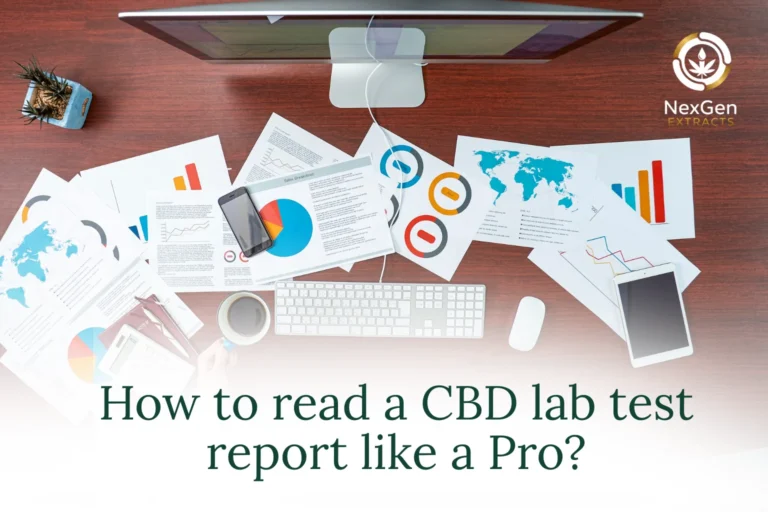
The Hook
CBD has become one of the most popular wellness products in recent years. Marketed as “natural,” it has earned a reputation as a safe and gentle option for stress, sleep, and pain relief. But here’s the surprising truth: natural doesn’t always mean harmless. Just like grapefruit juice — yes, the breakfast staple — CBD can interact with certain medications in ways that may cause serious health problems.
If you’ve ever noticed a warning label on a prescription bottle that says, “Do not take with grapefruit,” you already know part of the story. Grapefruit juice can interfere with how your body processes certain medications, leading to dangerously high levels in your bloodstream. CBD acts in a similar way.
This is often called the “Grapefruit Rule.” In simple terms: if your medication carries a grapefruit warning, you should be cautious with CBD, too.
The goal of this article is to break down the science behind this interaction, highlight which medications may be at risk, and explain why consulting your doctor is absolutely essential before mixing CBD with other prescriptions.
The Metabolic “Factory” – Cytochrome P450 Enzymes
What is CYP450?
To understand why CBD can interfere with medications, we need to look at the Cytochrome P450 enzyme system (CYP450). Think of it as your body’s metabolic factory. This system, located primarily in the liver, works around the clock to process medications, toxins, and even nutrients from food. When you take a pill, the CYP450 enzymes break it down into smaller, more manageable parts that your body can use or safely eliminate.
Without this “factory,” medications could build up in the body to unsafe levels.
The Key Player: CYP3A4
One enzyme in particular, CYP3A4, is especially important. It’s responsible for metabolizing nearly 60% of all prescribed drugs. This makes it a major hub in the factory assembly line. Anything that interferes with CYP3A4 can have a ripple effect on a huge range of medications.
How CBD and Grapefruit Affect CYP450
Both CBD and grapefruit contain compounds that act as enzyme inhibitors. Imagine throwing a wrench into the gears of the factory — the assembly line slows down or even stops. Specifically, they “clog” CYP450 enzymes, preventing them from breaking down drugs efficiently.
When that happens, the medication you take lingers in the bloodstream for much longer and at higher concentrations than intended. What your doctor prescribed as a safe dose could suddenly become too strong, leading to side effects, toxicity, or overdose.
The Consequences
- Higher Drug Levels: Medications accumulate, amplifying both intended effects and side effects.
- Unexpected Reactions: Even drugs you’ve taken for years can suddenly affect you differently.
- Serious Health Risks: From excessive bleeding to dangerously low blood pressure, the consequences can be life-threatening.
CYP450 Enzymes Affected
Some of the key enzymes that CBD may impact include:
- CYP3A4 – involved in most medications (antidepressants, blood thinners, heart drugs).
- CYP2C19 – processes drugs like anti-seizure medications and proton pump inhibitors.
- CYP2D6 – affects antidepressants and opioids.
Medications at Risk
⚠️ Important Disclaimer: The following list is not complete. It is for educational purposes only. Always consult your healthcare provider before combining CBD with any medication.
1. Blood Thinners (Anticoagulants)
- Examples: Warfarin (Coumadin), Apixaban (Eliquis).
- Risk: CBD may increase blood thinner levels, leading to excessive bleeding, easy bruising, or even internal hemorrhage.
2. Immunosuppressants
- Examples: Tacrolimus, Cyclosporine.
- Risk: These drugs are often prescribed for organ transplant patients. A small increase in blood levels can lead to kidney damage, infection, or organ rejection.
3. Heart Medications
- Examples: Calcium channel blockers (Amlodipine, Nifedipine), Beta-blockers (Metoprolol).
- Risk: Combining CBD may cause dangerously low blood pressure, dizziness, or irregular heart rhythm.
4. Antidepressants and Anti-Anxiety Medications
- Examples: SSRIs (Prozac, Zoloft), Benzodiazepines (Xanax, Klonopin).
- Risk: Potential for increased sedation, drowsiness, and impaired motor function. In severe cases, it could lead to respiratory depression.
5. Epilepsy Medications
- Examples: Clobazam, Valproate.
- Risk: CBD is sometimes prescribed for epilepsy (Epidiolex), but when combined with other anti-seizure drugs, it can either raise drug levels too high or cause liver stress.
6. Pain Relievers
- Examples: Opioids (Oxycodone, Morphine), NSAIDs (Ibuprofen, Naproxen).
- Risk: Opioids + CBD may lead to extreme drowsiness, slowed breathing, and overdose risk. With NSAIDs, CBD may increase the risk of stomach bleeding or liver toxicity.
7. Cholesterol Medications (Statins)
- Examples: Simvastatin, Atorvastatin.
- Risk: Increased drug levels can lead to muscle pain, weakness, or in rare cases, a serious condition called rhabdomyolysis (muscle breakdown).
The Role of Your Doctor
Why Consultation is Non-Negotiable
No online article or supplement label can replace medical expertise. Your doctor understands your entire health history, including medications, dosages, and conditions. They are the only ones who can safely determine whether CBD is appropriate for you.
What to Discuss with Your Doctor
To get the most out of your consultation, prepare with this checklist:
- The CBD product: Is it an oil, gummy, vape, or topical? Is it full-spectrum or isolate?
- Your goal: Why do you want to take CBD? For sleep, stress, pain?
- Complete medication list: Include prescriptions, over-the-counter drugs, vitamins, and supplements.
- Health conditions: Any chronic issues like liver disease, high blood pressure, or heart disease.
How a Doctor Can Help
- Adjust Doses: They may lower or increase your prescription dose.
- Order Tests: Blood tests can monitor drug levels in your system.
- Recommend Alternatives: They may suggest non-interacting supplements or therapies.
- Warn of Risks: In some cases, they may advise avoiding CBD entirely.
Conclusion and Call to Action
CBD can be a helpful wellness tool, but it’s not risk-free. Just as grapefruit juice can alter how medications are processed, CBD has the potential to interfere with critical drug-metabolizing enzymes in the liver. This “grapefruit rule” isn’t meant to scare you — it’s meant to empower you with knowledge.
The takeaway is simple: If your medication has a grapefruit warning, be cautious with CBD. And even if it doesn’t, always check with your doctor before starting CBD.
Your health is too valuable to gamble with. Don’t rely on marketing claims or anecdotal stories online. Instead, make the smartest choice: talk to your doctor. They can guide you safely, ensuring that CBD becomes a helpful addition to your wellness routine rather than a hidden risk.
Final Call to Action: Before you try CBD, make the call. Your health is worth it.



